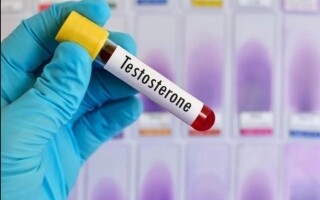
According to the latest data, treatment with alternative hormones does not increase the risk of developing prostate cancer. Patients receiving alternative hormonal therapy should reduce their blood sugar levels and body weight through a balanced diet, regular exercise, and abstaining from alcohol. Positive results become noticeable within six months.
Possible side effects of alternative hormonal therapy should be discussed with the doctor, such as increased breast size, acne, hair loss, and changes in blood analysis. Patients with advanced prostate cancer should not undergo such treatment.
The Center for Reproductive Health and Men's Affairs at the University Clinic of Münster, Germany, notes that testosterone deficiency in men may be identified by the following signs: loss of muscle mass with concomitant fat increase in the abdominal area, decreased bone mass, low red blood cell count, fatigue, concentration problems, and insomnia.
Testosterone levels begin to decline around 40 years of age, especially in patients with diabetes and other chronic conditions. Patients with type 2 diabetes are sensitive to the deficiency of functional testosterone associated with chronic conditions. Testosterone enhances sensitivity to insulin indirectly by acting on receptors and indirectly through a positive effect on fat mass and muscle mass, which increases blood sugar levels.
Therefore, patients with diabetes who have established testosterone deficiency may benefit from testosterone therapy, improvements in body weight, insulin resistance, and the likelihood of pearl-like tumors. It is recommended to apply alternative hormonal treatment using testosterone only with a lowered level in the blood and characteristic symptoms. The hormone is administered to patients every 10-14 weeks for continued release. Improvements are observed already within a month or two of treatment.










